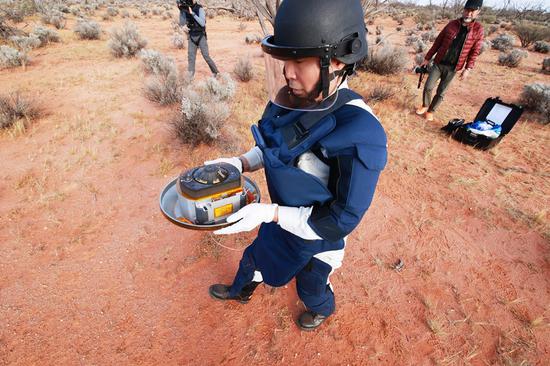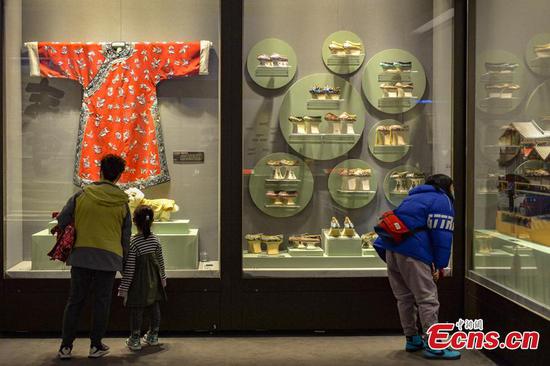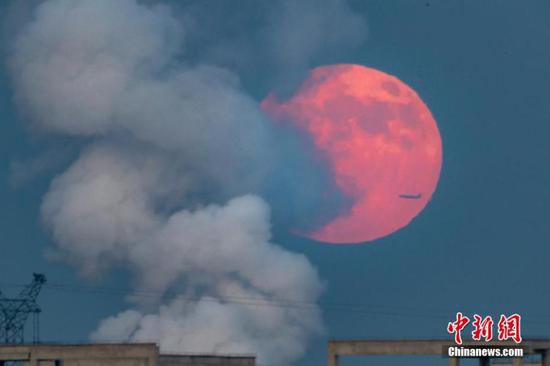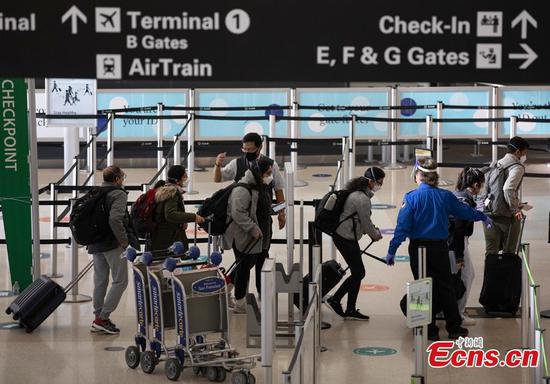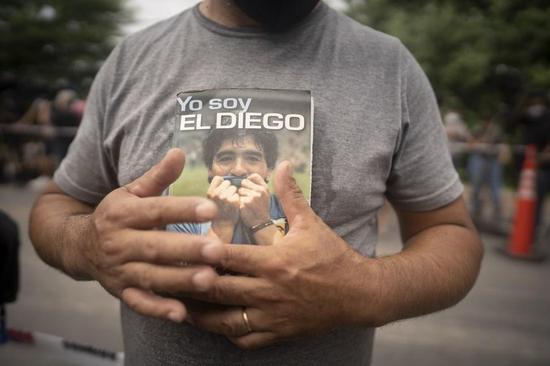Germany reported 23,679 new COVID-19 infections within one day, a new record, bringing the total to 1.24 million, the Robert Koch Institute (RKI) announced on Thursday.
The number of deaths related to COVID-19 in the country increased by 440 within one day to a tally of 20,372 on Thursday, according to RKI, the federal government agency for disease control and prevention. Germany witnessed a new record of 590 COVID-19 deaths on Wednesday.
"The number of cases has been on a high plateau for weeks, and we are currently even seeing an increase in the number of cases again," said Lothar Wieler, president of the RKI, during a press conference on Thursday, describing the development as "worrying".
Wieler warned that the situation was "extremely fragile", as the number of COVID-19 cases in Germany could quickly rise exponentially again. "We have to prevent this," he stressed.
Germany will remain under a partial lockdown until at least Jan. 10, with strict restrictions on contact in private and public life as well as the closure of restaurants, bars and leisure facilities.
Chancellor Angela Merkel said during her speech in the Bundestag on Wednesday that Germany had entered "a decisive, perhaps the decisive, phase in the fight against the pandemic."
The second COVID-19 wave was a "tough one", she noted. Despite the current restrictions on contact in Germany, the trend of rising infection rates had not reversed.
According to the RKI, the incidence rate of the last seven days also reached a new record and rose to 149.7 cases per 100,000 inhabitants in Germany on Thursday. At the beginning of November, when Germany entered the partial lockdown, the 7-day incidence rate only stood at around 120.
In view of high COVID-19 infection numbers, the German National Academy of Sciences Leopoldina recommended a hard lockdown including the closure of all stores except those for daily needs over Christmas.
Merkel appealed to take the Leopoldina recommendations seriously. Measures suggested for the hard lockdown also included a further reduction of social contacts, extending public school vacations as well as a focus on digital teaching.
Minister of Health Jens Spahn supported the idea to power down as a society during the Christmas holidays. For many people in Germany, it was the quietest time of the year and therefore a time when "we should give this virus almost no chance for two weeks."
As the world is struggling to contain the pandemic, countries including France, China, Russia, the United Kingdom and the United States are racing to find a vaccine.
According to the website of the World Health Organization, as of Dec. 8, there were 214 COVID-19 candidate vaccines being developed worldwide, and 52 of them were in clinical trials.






















